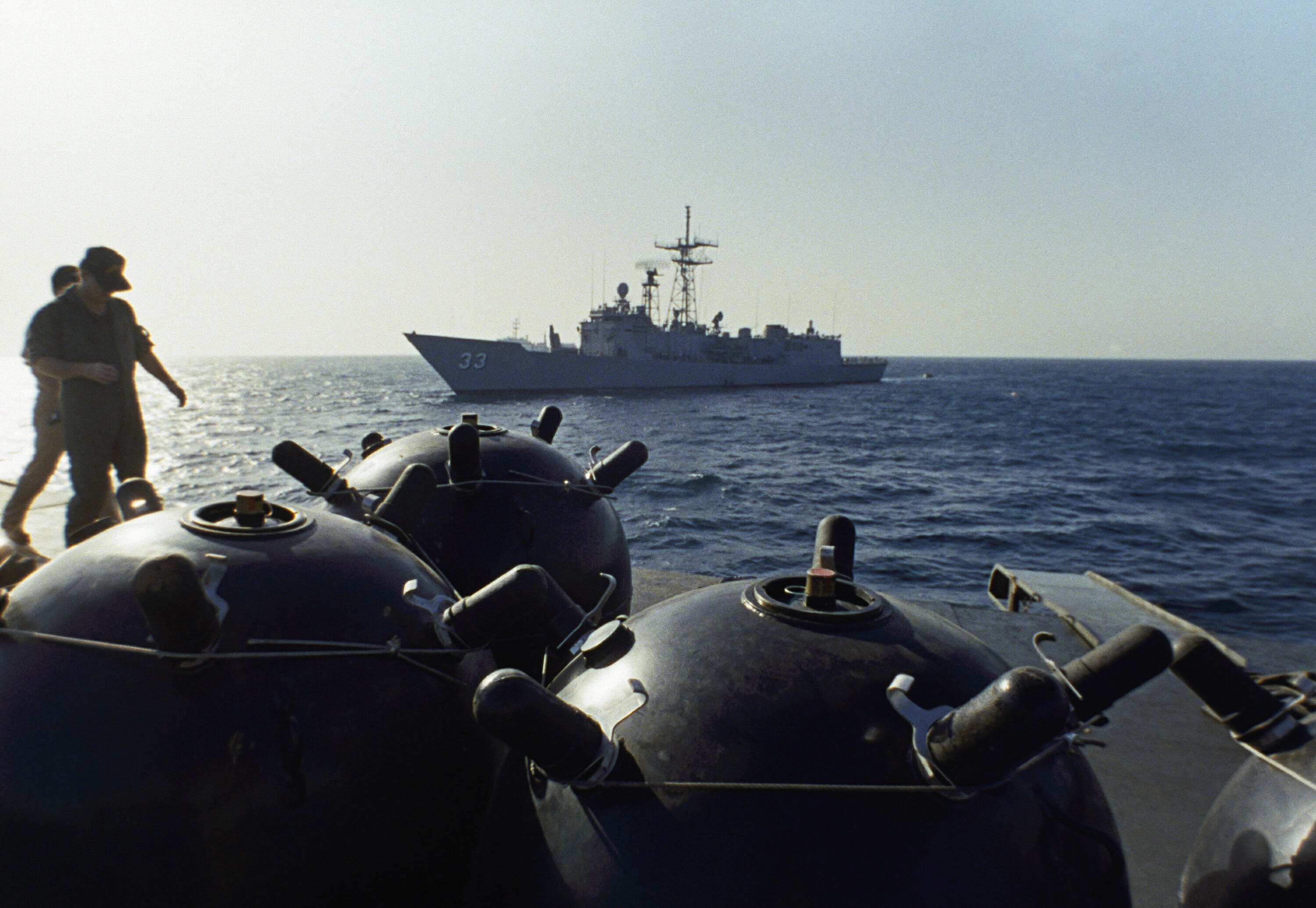
Saudi crown prince says kingdom isn't seeking war in region
DUBAI, United Arab Emirates (AP) — Saudi Arabia’s Crown Prince Mohammed bin Salman said in remarks published Sunday that the kingdom will not hesitate to confront Iranian threats to its security. He joined the U.S. in accusing its bitter rival Iran of being behind the attacks on two oil tankers traveling near the Strait of Hormuz, a vital trade route for Arabian energy exports.
Tensions in the Persian Gulf have escalated since the U.S. sent an aircraft carrier strike group and other military assets to the region in what it says is defensive posturing against alleged Iranian threats. The crisis takes root in the Trump Administration’s decision to re-impose punishing economic sanctions on Tehran and its oil exports, after unilaterally withdrawing the U.S. from the 2015 nuclear deal between Iran and world powers.
The U.S. alleges Iran used limpet mines to target the tankers on Thursday, pointing to black-and-white footage it captured that American officials describe as an Iranian Revolutionary Guard vessel removing an unexploded mine from the Japanese-operated tanker Kokuka Courageous.
The Japanese tanker’s crewmembers appeared to contradict the assertion that mines were used. They described “flying objects” as having targeted the vessel.
In his first public comments regarding the attacks, the powerful Saudi prince, who is also defense minister and oversees all major levers of power in the country, said the incident “confirms the importance of our demands of the international community to take a decisive stance” against Iran’s behavior.
“The kingdom does not seek war in the region,” the prince said, speaking with the Arabic-language newspaper Asharq al-Awsat. “But we will not hesitate to deal with any threat to our people, sovereignty and vital interests.”
The prince claimed Iran had planned the attack’s timing to undercut the Japanese prime minister’s diplomatic efforts, during his visit to Tehran last week, to reduce regional tensions.
He did not offer any evidence to back up the allegation.
“The problem is in Tehran and not anywhere else,” he added. “Iran is always the party that’s escalating in the region, carrying out terrorist attacks and criminal attacks either directly or through its militias.”
Prince Mohammed touted U.S.-Saudi relations as “essential to achieving regional security and stability.”
Speaking on “Fox News Sunday,” Secretary of State Mike Pompeo reiterated the U.S. official position. He claimed that intelligence officials have “lots of data, lots of evidence” tying Iran to the attacks, though he did not provide any specifics. He called the alleged shipping attacks “an international challenge, important to the entire globe.”
He said Trump was following an “economic pressure campaign” against Iran but “we do not want war.” He added that the “unambiguous” object of U.S. actions was that Iran would not get nuclear weapons.
Iran rejects accusations it was responsible for Thursday’s attacks, saying it stands ready to play an active and constructive role in ensuring the security of maritime passages. It said the massive U.S. military presence in the region and U.S. sanctions are the main sources of insecurity and instability in the Persian Gulf.
Thursday’s incidents forced the evacuation of all 44 sailors aboard the two vessels. On Saturday, Associated Press journalists saw the crew members of the Norwegian-owned oil tanker MT Front Altair arrive at Dubai International Airport, after spending two days in Iran.
The Front Altair, which caught fire after the apparent attack, limped into anchorage Sunday off the eastern coast of the United Arab Emirates, near the port city of Khorfakkan.
Similar to the recent attacks, four oil tankers off the coast of the United Arab Emirates were apparently targeted in acts of sabotage last month, which U.S. officials have also blamed on Iran. Two of those vessels belonged to Saudi Arabia.
Iranian-allied Yemeni rebels, known as Houthis, have also claimed they were behind a missile strike on a Saudi airport in the city of Abha that the kingdom said wounded 26 passengers. The Houthis also carried out a drone strike last month on a key Saudi oil pipeline
The Western Journal has not reviewed this Associated Press story prior to publication. Therefore, it may contain editorial bias or may in some other way not meet our normal editorial standards. It is provided to our readers as a service from The Western Journal.
Truth and Accuracy
We are committed to truth and accuracy in all of our journalism. Read our editorial standards.
Advertise with The Western Journal and reach millions of highly engaged readers, while supporting our work. Advertise Today.












